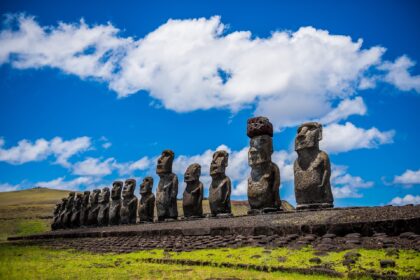
One thing I love about many Pagan and indigenous spiritualities is the way they honor the past through veneration of the ancestors. For them, this is a way of remembering that none of us exist in a vacuum, that we depend on a long, unbroken line of beings which we had no control over to come to the present. None of us would exist without the actions of those who came before us, and there are countless lessons for us to learn in the present to help us become the best people we can. Such societies consider honoring the past to be one of their greatest duties, to remember that that which came before as a part of us and essential to the people we are today.
There has traditionally been some snobbery about ancestral beliefs in western culture, and some archaeologists and theologians assume that it is a “primitive” belief that naturally dies out as a society advances. Other people assume that a belief in ancestor veneration means accepting and forgiving the past uncritically, glossing over the bad that happened in the past and pretending like bad things didn’t happen.
This is complicated by the fact that many of our ancestors did bad things. In my own family tree, I have colonizers, slave holders, conquering warlords, abusers, and other unsavory types. And those are just the ones I know about. There’s a lot to not like about my past, and I certainly don’t see them as examples to emulate. I have no illusions that the past is not a nostalgic utopia, and such forgetful musings about the past can lead to disastrous consequences, as the Make America Great Again movement proves.
But learning about those who came before is not just for finding examples to live up to. As one of my colleagues recently reminded me, there is something to learn from each of our ancestors. It’s just that sometimes that message is, “Not this way!’
The practice of ancestor veneration is a reminder that the past is a teacher, not our destiny. Even if your ancestral line is filled with scoundrels and scourges, there’s still something to take from it: that we can build a better future together, one that will make those who come after us more proud. No, those who came before us weren’t perfect, and neither are we. Hopefully, though, we can be counted good ancestors to those who came before.
